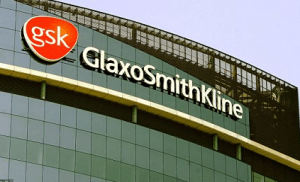GSK invests $365m in ongoing development of malaria vaccine
 GSK, a British Multinational Pharmaceutical Company, has announced that the Committee for Medicinal Products for Human Use (CHMP) of the European Medicines Agency has adopted a positive scientific opinion for its malaria candidate vaccine MosquirixTM.
GSK, a British Multinational Pharmaceutical Company, has announced that the Committee for Medicinal Products for Human Use (CHMP) of the European Medicines Agency has adopted a positive scientific opinion for its malaria candidate vaccine MosquirixTM.
The drugs manufacturer has so far invested $365 million into the vaccine’s development.
The drug is also known as RTS, S, in children aged 6 weeks to 17 months.
Following this decision, the World Health Organisation (WHO) would now formulate a policy recommendation on use of the vaccine in national immunisation programmes once approved by national regulatory authorities.
Mosquirix is the brand name given to the malaria candidate vaccine. Its scientific name, RTS,S, reflects the composition. RTS,S also contains the AS01 adjuvant system.
A statement issued in Accra and copied to the GNA and signed by Brian Sibanda on behalf of GSK said RTS,S, which was developed in partnership with the PATH Malaria Vaccine Initiative, is the first candidate vaccine for the prevention of malaria to reach this milestone.
While other vaccines tackle viruses or bacteria, RTS,S has been designed to prevent malaria caused by the Plasmodium falciparum parasite, which is most prevalent in sub-Saharan Africa (SSA) .
In 2013, there were an estimated 584,000 deaths from malaria with around 90 per cent of these occurring in SSA, and 83 per cent in children under the age of five in SSA1.
The CHMP scientific opinion is a key step in the regulatory process toward making RTS,S available alongside existing tools currently recommended for malaria prevention.
Clinical data submitted for CHMP assessment were mainly from a Phase III clinical trial programme involving more than 16,000 young children that was conducted by 13 African research centres in eight African countries (Ghana, Burkina Faso, Gabon, Kenya, Malawi, Mozambique, Nigeria, and Tanzania).
“Data from this trial programme demonstrate that over the first 18 months following three doses of RTS,S, malaria cases were reduced by almost half in children aged 5-17 months at the time of first vaccination and by 27 per cent in infants aged 6-12 weeks,” the statement said.
It said the efficacy of RTS,S was evaluated in addition to existing malaria control measures, such as insecticide treated bed nets, which were used by approximately 80 per cent of the children and infants in the trial.
Sir Andrew Witty, CEO of GSK said: “Today’s scientific opinion represents a further important step towards making available for young children the world’s first malaria vaccine.
“While RTS,S on its own is not the complete answer to malaria, its use alongside those interventions currently available such as bed nets and insecticides, would provide a very meaningful contribution to controlling the impact of malaria on children in those African communities that need it the most.
“The work doesn’t stop here and GSK remains committed to investing in R&D (research and development) for malaria vaccines and treatments to find more ways to tackle this devastating disease.”
GSK has committed to a not-for-profit price for RTS,S so that, if approved, the price of RTS,S would cover the cost of manufacturing the vaccine together with a small return of around five percent that would be reinvested in research and development for second-generation malaria vaccines, or vaccines against other neglected tropical diseases.
Following the CHMP positive scientific opinion, two of the WHO’s independent advisory groups, the Strategic Advisory Group of Experts on Immunisation and the Malaria Policy Advisory Committee would jointly review the evidence base for RTS,S and make a joint policy recommendation for how it might be used alongside other tools to prevent malaria in the event the vaccine candidate is approved by national regulatory authorities in SSA.
The WHO has indicated that such a policy recommendation may be possible by end of the year.
The statement said RTS,S aims to trigger the body’s immune system to defend against the Plasmodium falciparum malaria parasite when it first enters the human host’s bloodstream and/or when the parasite infects liver cells.
“It is designed to prevent the parasite from infecting, maturing and multiplying in the liver, after which time the parasite would re-enter the bloodstream and infect red blood cells, leading to disease symptoms.
The safety and efficacy of RTS,S has been evaluated in a large-scale Phase III trial, in which it was administered in three doses, one month apart, with an additional fourth dose given 18 months later.
Results from this trial have consistently demonstrated that RTS,S could help to protect children against malaria in endemic countries, when used in addition to other malaria control measures such as bed nets.
RTS,S is the most advanced malaria vaccine candidate in development globally.
It was created in 1987 by scientists working at GSK laboratories. Early clinical development was done in collaboration with the Walter Reed Army Institute for Research.
In January 2001, GSK and PATH, with grant monies from the Bill & Melinda Gates Foundation to PATH, entered into a public-private partnership to develop an RTS,S-based vaccine for infants and young children living in malaria-endemic regions in sub-Saharan Africa.
GSK has invested more than $365 million to date and expects to invest a further $200 to $250 million until development is completed.
Between 2001 and the end of 2014, the MVI, supported by grants from Bill & Melinda Gates Foundation, invested more than $200 million to advance the RTS,S project.
Source: GNA
